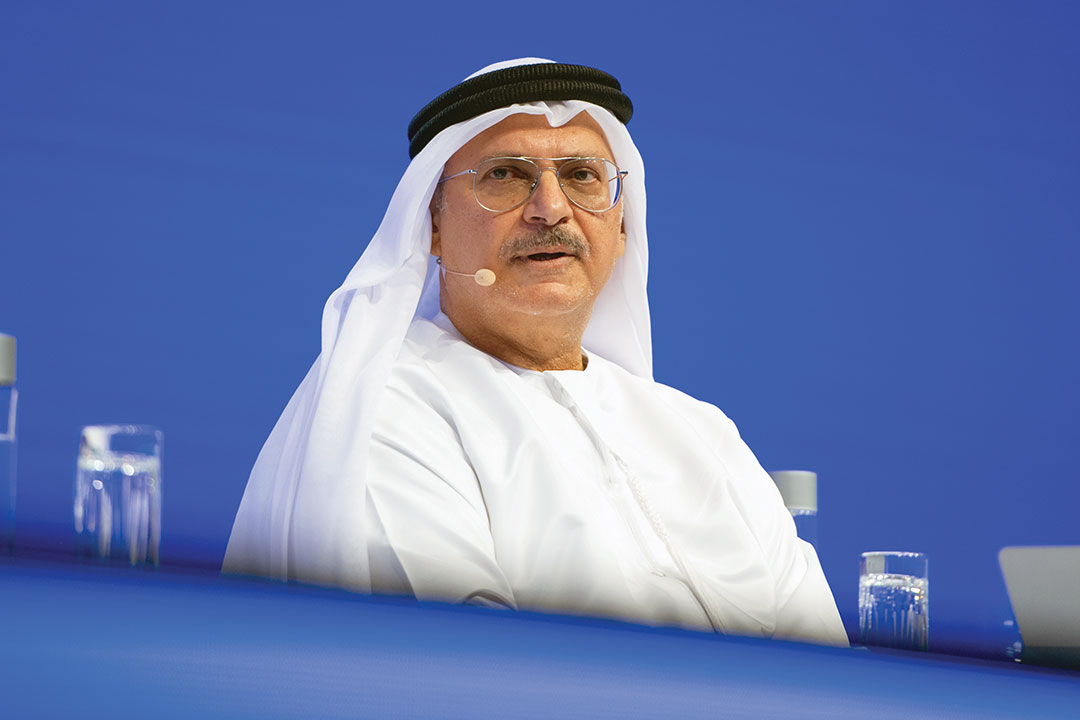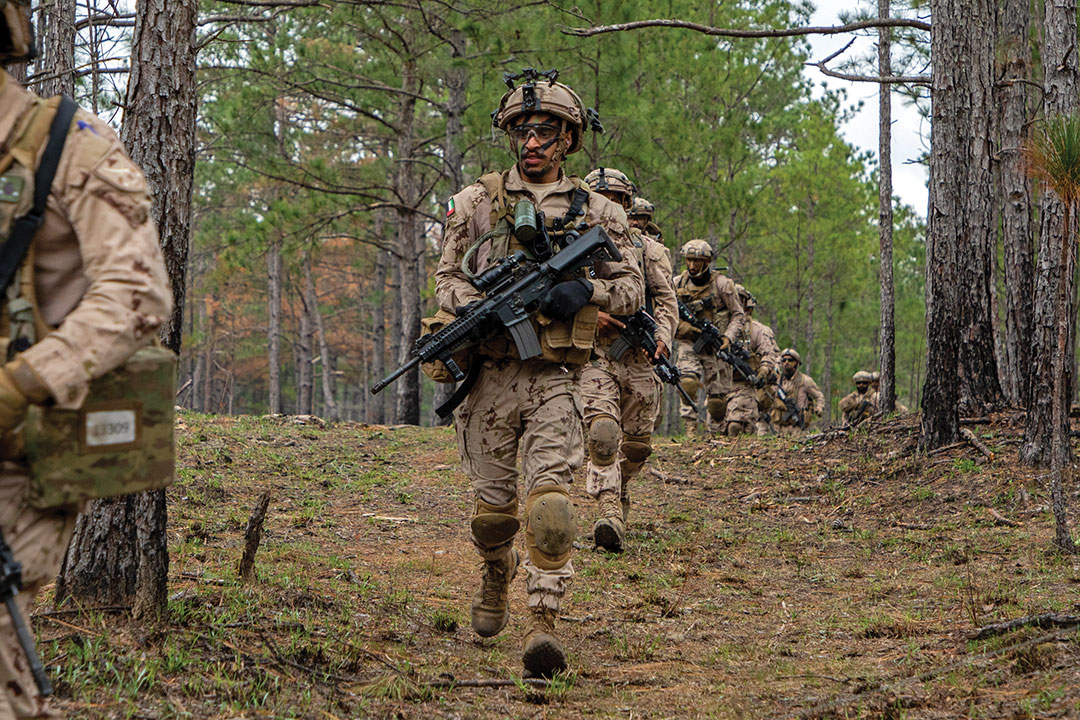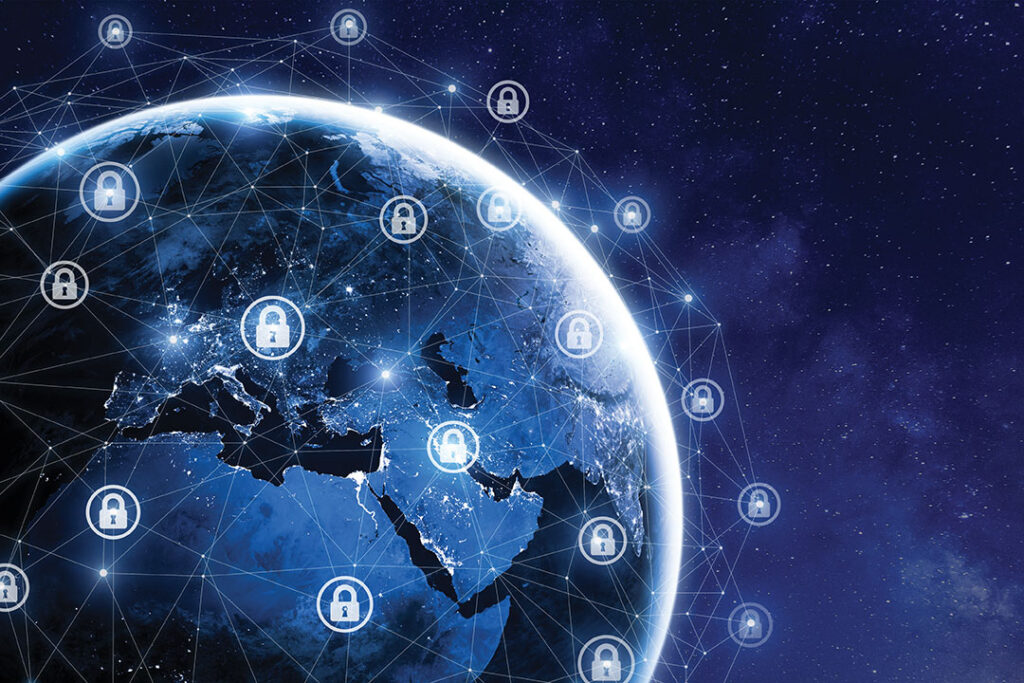The United Arab Emirates seeks constructive engagement from global partners to help stabilize the Middle East
DR. ANWAR GARGASH, DIPLOMATIC ADVISOR TO THE PRESIDENT, UNITED ARAB EMIRATES
 The Manama Dialogue offers us an important platform to share our perspectives on regional and global security dynamics. I believe conversations like these are valuable, particularly at such a critical juncture in our region in light of the war in Gaza.
The Manama Dialogue offers us an important platform to share our perspectives on regional and global security dynamics. I believe conversations like these are valuable, particularly at such a critical juncture in our region in light of the war in Gaza.
This war has caused a serious humanitarian crisis, calls into question aspirations for stability in our region and brings new strategic challenges to the global stage. While it is perhaps too early to know how this crisis will impact the trajectory of regional and international relations, it is important to acknowledge that it will have ramifications for years to come.
I would like to spend a few moments on the topic of Navigating Global Competition. In my last remarks at the Manama Dialogue in 2019, I spoke about how we were about to enter the 2020s with a global order that was very fluid, a global order that seemed to lack a clear direction, a global order where the potential for increased competition among major powers was growing, including in the Middle East.
Just a few months later, the COVID-19 pandemic spread around the world, adding an extra layer of uncertainty to the global strategic context and shaking the global economy. The war in Ukraine also adds to the geopolitical uncertainty, with its knock-on effects on the entire global economy, as well as food and energy security.
They are also compounded by broader systemic trends such as climate change, the nature of our very interconnected modern world, and the political, economic and security effects of competition in the world and in the technological sphere. The way we navigate these trends will shape our future.
I would like to underscore a couple of important points with respect to the shifting dynamics in global politics and the Middle East. The Middle East is familiar with geopolitical competition playing out in its regional order. In fact, one of the key challenges we confront is the shifting dynamics of global politics.
We understand only too well that a more turbulent international order will inevitably cascade down to affect our region. This is something we have to deal with, whether it is concerns about how the geopolitical competition between major powers unfolds in the Middle East — a competition we do not wish to be defined by — or questions about what the international system will look like in the days after the wars in Ukraine and the Gaza Strip end.

MAJ. JASON WELCH/U.S. ARMY CENTRAL
A transition to an increasingly divided international system is in no one’s interest. Nor is increased uncertainty across the Middle East, a region that has recently experienced its most difficult decade with the so-called Arab Spring and where the risk of escalation and rise in power vacuums is a consistent threat.
At this uncertain time in global and regional affairs, and in a world marked by rapid change and increasing competition, it is imperative that the Middle East carefully continue to chart a course to ensure stability, prosperity and peace for our nations.
We have seen some promising signs in the last few years, as Middle Eastern states have been working together to find solutions to de-escalate conflicts, rebuild relations and focus on common goals. Although this progress was uneven, we had renewed hopes that the Middle East will be charting a new path for years to come. The war in Gaza represents a serious setback, no doubt about it, to de-escalation efforts in the wider region.
We must prevent narratives of division from taking hold in the region and confront extremism in all its forms. While we continue to work hard towards the cessation of hostilities, the immediate priority is to achieve sustained and unrestricted humanitarian access to Gaza and substantial relief to alleviate the suffering of civilians in Gaza.
In response to this acute need, the United Arab Emirates (UAE) has significantly stepped up its humanitarian efforts to support the people of Gaza, not just by increasing our financial commitments, but also by working in solidarity with medical teams in Gaza to set up an emergency field hospital there and by taking children from Gaza to the UAE for medical treatment.
We recently airlifted 90 injured children to Abu Dhabi, and this is part of our commitment to provide such care to 1,000 injured Gazan children. This is, of course, a drop in the ocean of what Gaza needs. But we have to all work together to make the humanitarian effort significant and sustainable.
It is time to look to the future and ask some deep, probing questions. Can we maintain a forward-looking momentum despite regional crisis? And in light of the war in Gaza and its implications, can we work together to find lasting solutions to de-escalate tensions in the Middle East?
I believe the answer to these questions is, we must resolutely continue on a path to defend regional stability, and that requires that we continue efforts to repair the region, including by advancing our national plans to ensure progress and, through collaborative efforts with global and regional partners, to develop long-term strategies for the region. The need for reliable partners in the region is key.
There are issues in the region that need sustainable solutions, such as socioeconomic disparities and aspirations for peace and prosperity among young people across the region. While some of these issues still seem out of reach, they must be addressed to bring greater stability to the Middle East.
The UAE remains committed to the security and stability of our region, working with friends and partners on an agenda of shared prosperity. In doing so, we will continue to prioritize de-escalation, partnerships, diplomacy and our enhanced focus on geoeconomics, because economic resilience is fundamental to the well-being of our nations and to the goals of achieving a shared stability that benefits us all.
If we can successfully pursue these goals through inclusive cooperative approaches with regional and international partners, I believe we can improve regional security and lay the groundwork for a more prosperous and peaceful Middle East in the years to come.

